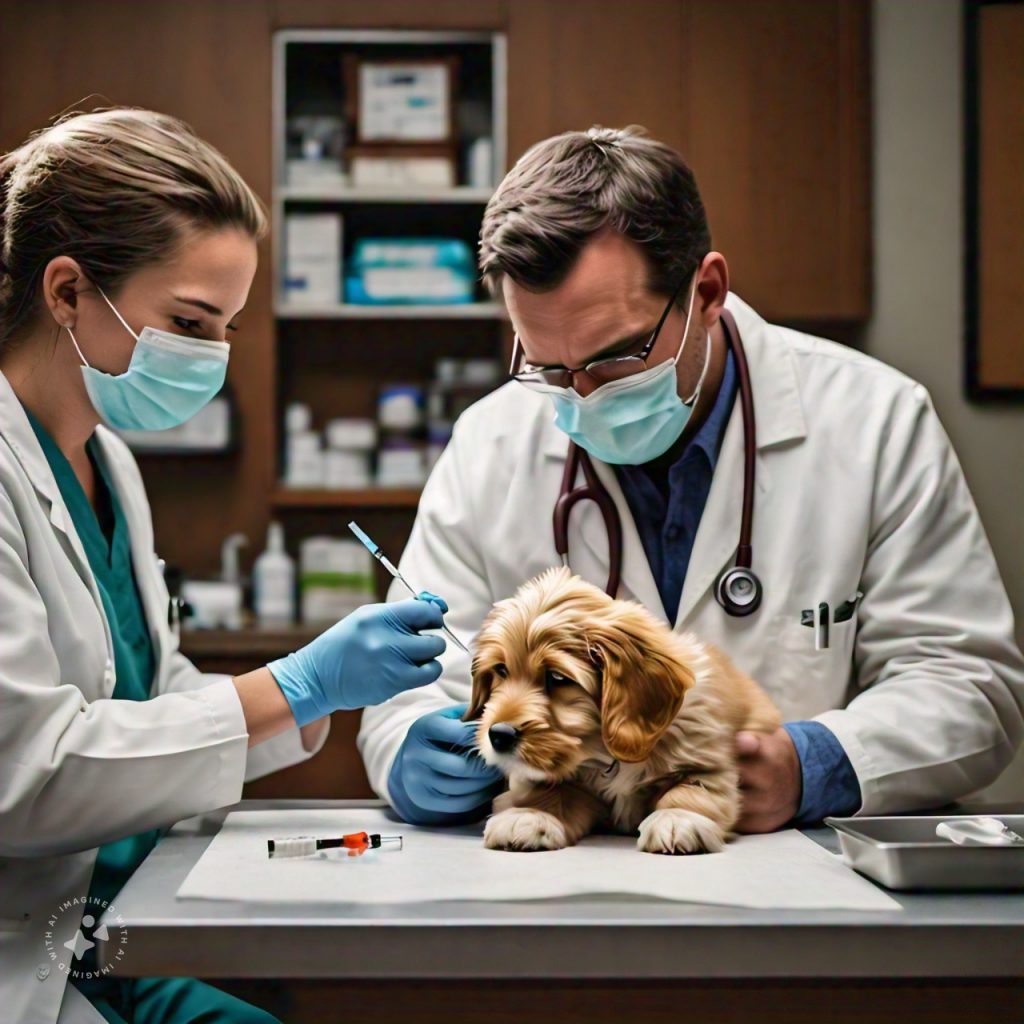Vaccinations are a cornerstone of preventive healthcare for puppies and dogs, safeguarding them against a host of potentially fatal diseases. Understanding the importance of vaccinations, the types available, and the appropriate schedules can ensure your furry friend leads a healthy, protected life. This in-depth guide covers everything you need to know about puppy and dog vaccinations to make informed decisions for your pet’s well-being.
Why Are Vaccinations Important for Puppies and Dogs?
Vaccinations work by stimulating your dog’s immune system to recognize and fight off specific diseases. Without them, your pet is vulnerable to illnesses that can lead to severe complications or even death.
Key Benefits of Vaccinations
- Disease Prevention: Protects your pet from serious infections like rabies, distemper, and parvovirus.
- Public Safety: Many dog diseases, such as rabies, are zoonotic (transmissible to humans).
- Compliance with Laws: Some vaccines, like rabies, are legally required in many regions.
- Cost-Effective: Vaccinations are far less expensive than treating preventable diseases.
Core vs. Non-Core Vaccines: What’s the Difference?
Vaccines are categorized into two groups: core and non-core, based on the level of necessity and risk factors.
Core Vaccines
Core vaccines are essential for all dogs regardless of their lifestyle, as they protect against diseases that are widespread and pose a severe risk to both pets and humans.
- Rabies: A fatal disease that affects the central nervous system and can spread to humans.
- Distemper: A highly contagious virus that attacks the respiratory, gastrointestinal, and nervous systems.
- Parvovirus: A deadly gastrointestinal virus, especially dangerous for puppies.
- Adenovirus (Hepatitis): Protects against infectious canine hepatitis.
Non-Core Vaccines
Non-core vaccines are optional and recommended based on your dog’s lifestyle, geographic location, and potential exposure risks.
- Bordetella (Kennel Cough): Common in dogs exposed to boarding or group settings.
- Leptospirosis: A bacterial disease that can also affect humans, often found in areas with standing water.
- Lyme Disease: Recommended for dogs in tick-heavy regions.
- Canine Influenza: Suggested for dogs that frequent dog parks, kennels, or grooming facilities.
Puppy Vaccination Schedule
Puppies are particularly vulnerable to diseases because their immune systems are still developing. A structured vaccination schedule is crucial during their first year.
| Age | Vaccine | Notes |
|---|---|---|
| 6–8 Weeks | Distemper, Parvovirus (DHPP) | Initial core vaccines begin here. |
| 10–12 Weeks | DHPP, Bordetella (optional) | Booster for core and optional non-core vaccines. |
| 14–16 Weeks | DHPP, Rabies | Final core booster; rabies legally required. |
| 12–16 Months | DHPP, Rabies | Annual booster for long-term protection. |
Adult Dog Vaccination Schedule
After the first year, adult dogs require periodic boosters to maintain immunity.
- Core Vaccines: Boosters are typically administered every 1–3 years, depending on the vaccine type.
- Non-Core Vaccines: Frequency depends on risk exposure; some require annual boosters.
Factors Influencing Vaccination Needs
1. Age
- Puppies need more frequent vaccinations due to their immature immune systems.
- Older dogs may require adjustments based on health status.
2. Lifestyle
- Dogs that spend time in kennels or dog parks may need extra protection against diseases like Bordetella and canine influenza.
3. Geography
- Regions with high tick populations may necessitate Lyme disease vaccines.
- Areas with standing water may pose a leptospirosis risk.
4. Health Status
- Dogs with chronic illnesses or compromised immune systems may need tailored vaccination plans.
Common Side Effects of Vaccinations
Vaccines are generally safe, but mild side effects may occur. These typically resolve within 24–48 hours.
Common Side Effects
- Mild fever.
- Temporary lethargy.
- Swelling at the injection site.
- Loss of appetite.
When to Contact a Veterinarian
In rare cases, severe allergic reactions may occur. Symptoms include:
- Facial swelling.
- Difficulty breathing.
- Vomiting or diarrhea.
If you notice these symptoms, seek veterinary care immediately.
The Cost of Vaccinations
The cost of dog vaccinations varies based on location, the type of vaccine, and your veterinarian.
- Puppy Vaccines: $75–$150 for the initial series.
- Adult Boosters: $50–$100 annually or every three years, depending on the vaccine.
- Non-Core Vaccines: $20–$40 per vaccine.
Many animal shelters and clinics offer low-cost vaccination programs to ensure all pets receive essential care.
Can You Skip Vaccinations?
Skipping vaccinations puts your dog at significant risk for preventable diseases. It also exposes other pets and humans to harm, particularly with contagious diseases like rabies. Always consult your veterinarian before making vaccination decisions.
FAQs on Puppy and Dog Vaccinations
Q: Are vaccinations necessary for indoor dogs?
A: Yes. Even indoor dogs can be exposed to diseases through contact with other pets, humans, or pests like rodents and insects.
Q: Can I administer vaccines at home?
A: Some vaccines can be purchased and administered at home, but rabies vaccines must be given by a licensed veterinarian. Proper administration and storage are crucial to efficacy.
Q: What happens if my dog misses a booster shot?
A: If a booster is overdue, consult your vet immediately. Your dog may require a new vaccination series to rebuild immunity.
Final Thoughts
Vaccinations are a critical component of responsible pet ownership. By following recommended schedules and consulting your veterinarian, you can protect your puppy or dog from life-threatening diseases and ensure a long, healthy life.
Stay proactive about your dog’s healthcare, and don’t hesitate to reach out to a trusted veterinarian for personalized advice tailored to your pet’s unique needs.

